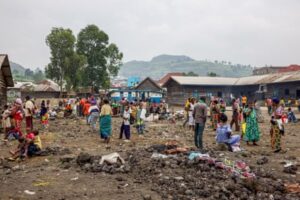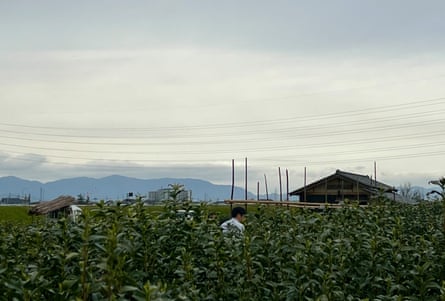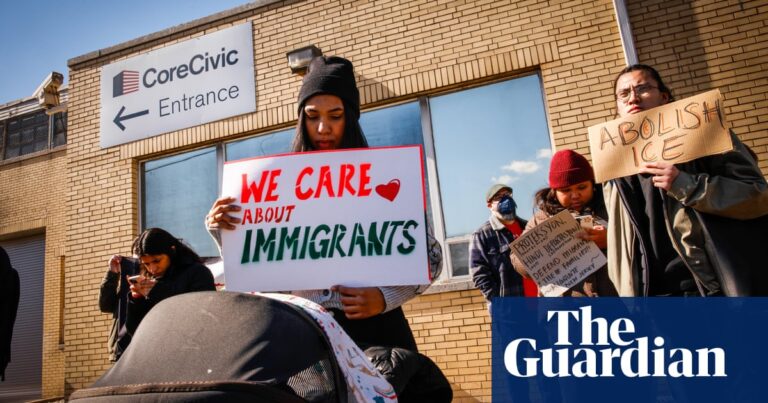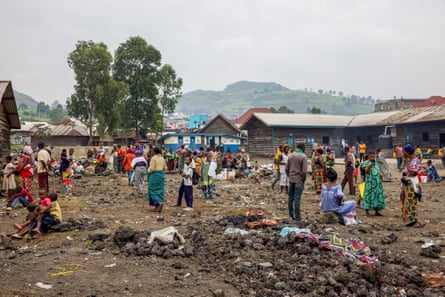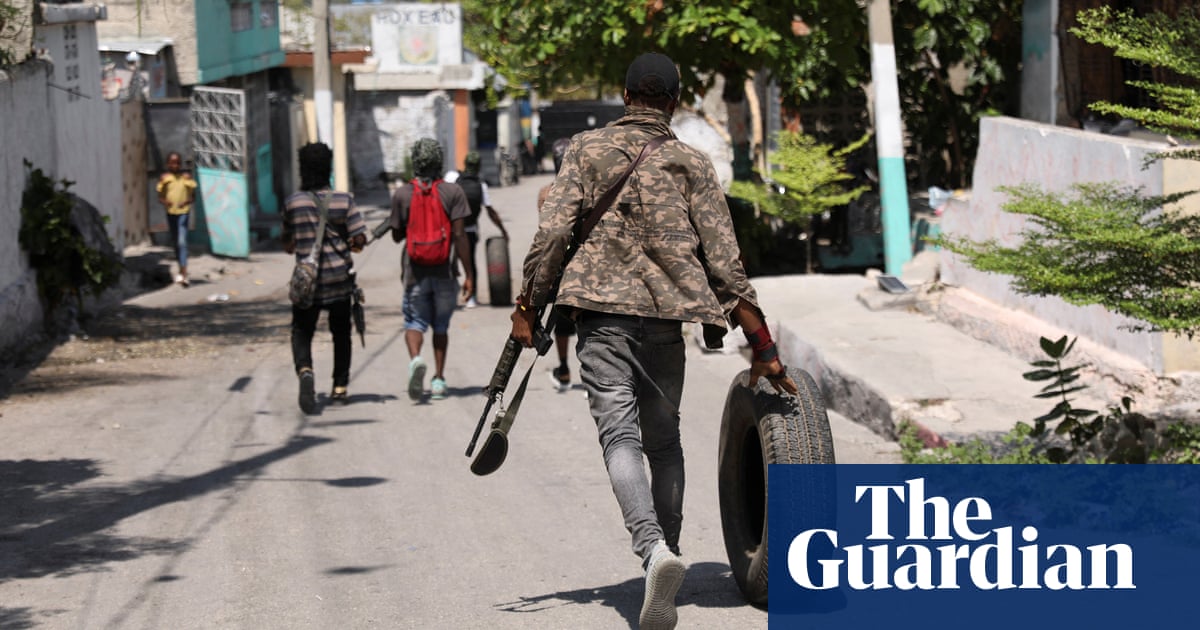
Haiti’s healthcare system has all but collapsed amid the ferocious gang insurrection which forced the resignation of the country’s prime minister, leaving victims of the violence with little hope of medical attention, according to aid workers in the stricken Caribbean country.
Over the course of the past two weeks, hospitals in Haiti have been intentionally burned down, doctors have been killed, and essential medical supplies have become scarce. As a result, there is currently only one functioning public hospital left in the capital city, which is also at risk of closing in the near future.
According to Mackynzie Archer, a consultant guiding prominent medical aid organizations in Haiti, the healthcare system in Port-au-Prince is virtually non-existent and deteriorating rapidly.
Haiti’s capital is currently paralyzed due to intense clashes between armed gangs and security forces, marking the most severe outbreak of violence the Caribbean nation has witnessed in decades.
Gun-wielding thieves raided police stations, government facilities, and the international airport. On Monday, they successfully reached their intended outcome, as Prime Minister Ariel Henry declared he would resign after a transitional council was selected.
However, as various political groups maneuver for power, the turmoil persists. Approximately half of Haiti’s citizens are facing hunger, access to basic resources like water and electricity is limited, and innocent bystanders are at risk of being hit by stray gunfire on a regular basis.
The United Nations estimates that a minimum of 15,000 individuals have been compelled to leave their residences due to recent violent conflicts, resulting in a total of 360,000 internally displaced persons.
According to Laurent Uwumuremyi, the director of Mercy Corps in Haiti, the people of Port-au-Prince have been forced to become nomadic, constantly moving from one neighborhood to another in search of shelter with family or unfamiliar individuals. This constant state of displacement has instilled fear in every aspect of their lives.
The outbreak of violent street battles has resulted in a rise in hospital admissions for injuries, at a time when many hospitals are shutting down due to a lack of personnel, electricity, and essential medical resources.
A number of establishments, such as St. Francis de Sales and Jude-Anne Hospital, both of which provide care for emergencies, have been purposefully damaged and robbed in the capital city.
Dr. Ronald V LaRoche stated to the New York Times that all essential equipment, such as operating rooms, X-ray machines, laboratory items and medications, were taken from the hospital. He expressed shock at the fact that even windows and doors were being removed.
Prior to the current turmoil, armed individuals held power over primary thoroughfares and entry points to the city’s harbor, impeding the delivery of anesthetics, blood, and oxygen.
According to Archer, it was common for patients to wait for a month in a hospital bed for routine surgeries due to a lack of necessary medical supplies for the operations.
Some medical professionals are choosing to stay at home in order to protect themselves from potentially getting caught in the middle of street fights or becoming targets for teenagers carrying assault weapons. This is due to the risk of providing medical assistance to either law enforcement or rival gang members.
On Tuesday, Dr. Nathalie Barthélémy Laurent became the most recent victim in the healthcare community after being fatally shot in her car by armed individuals near her residence in Port-au-Prince.
At the medical facility located in the center of Port-au-Prince at the State University of Haiti, BBC reporters discovered a clinic filled with patients but no medical personnel present. Instead, they found a deceased individual covered in flies, deteriorating in the hot and humid climate.
Last week, an individual told the BBC that there are no physicians remaining as they have all left.
The citizens of Haiti have endured immense obstacles in the past few decades, such as a fatal cholera epidemic and a 2010 earthquake that resulted in the loss of over 200,000 lives.
after newsletter promotion
According to Francesco Segoni, a representative for Médecins Sans Frontières (MSF), the current state of chaos has overshadowed previous instances of desperation. He compared the current crisis to a war zone in terms of its humanitarian impact.
A new study by MSF in the gang-controlled area of Cite Soleil revealed that 40% of deaths were a result of violence, which is similar to the statistics in Raqqa during its rule by the Islamic State and subsequent bombing by the international community.
Segoni stated that violence remains largely uncontrolled and there is currently no location within Port-au-Prince that can be considered safe.
The current situation is resulting in preventable fatalities of pregnant women and senior citizens who are unable to access vital medical care or essential medication that is considered standard in other regions.
“The inability to reach a compromise between the gangs and politicians has resulted in the populace bearing the consequences,” declared Flavia Maurello, director of the Italian non-profit organization AVSI in Haiti.
Leaders from the Caribbean and the United States have endorsed a proposal for a transitional council to replace Henry. However, various important groups have declined to get involved, and Jimmy “Barbeque” Chérizier, a gang leader believed to be behind the ongoing turmoil, has rejected any resolution supported by the global community.
Various NGOs, including MSF, have successfully established mobile clinics in certain regions. However, the duration of their safe operation is still uncertain.
Mumuza Muhindo Musubaho, in charge of MSF’s operations in Haiti, expressed concern that we may deplete our supply of necessary medicines and medical resources to address the current overwhelming demand.
According to Archer, at the Bernard Mevs clinic located in the northern part of the capital, nurses are struggling to sustain the lives of patients with minimal staff and without power, in a facility that has a capacity of 50 beds.
It is probable that within the following week, they will also shut down, dealing a final blow to the healthcare system in Port-au-Prince.
Source: theguardian.com







